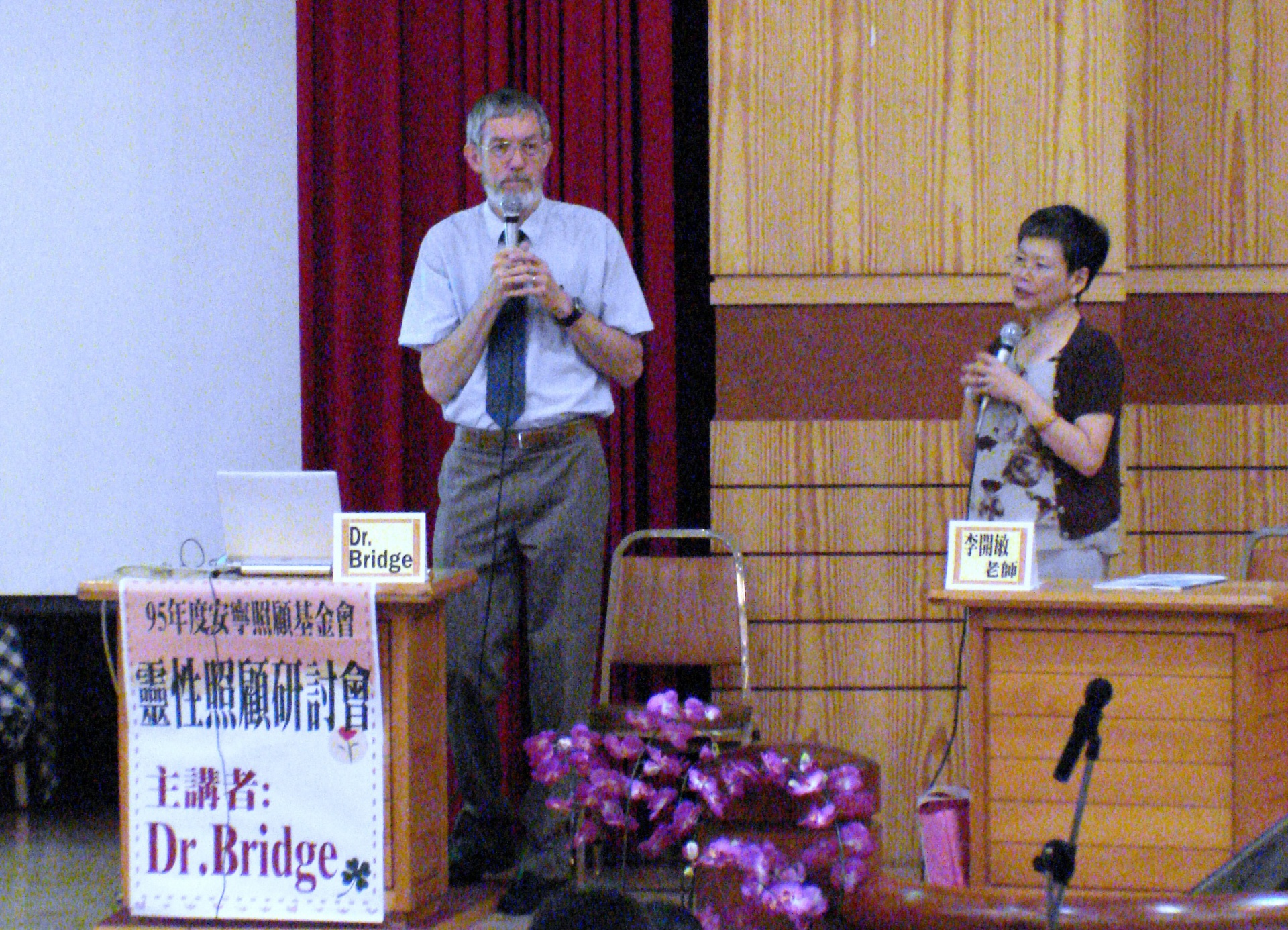Building up a local spiritual care model

When spiritual care in Taiwan was still in its early stage, Hospice Foundation
of Taiwan took the lead and invited experts and scholars to set the tone and find
consensus on what kind of spiritual care Taiwan needs.
HFT has also hosted relevant spiritual care lectures for professionals to acquire
knowledge and skill in hopes that these trained professionals will serve as
catalysts all over Taiwan and represent the core value of Taiwan medical care.
Ever since Taiwan started to promote palliative and hospice care, all medics have devoted themselves in elevating physical, psychological, and social care. Decades have passed now, and spiritual care is still regarded as a service that is provided at the very last stage of life; as such, it is sometimes categorized as a religious ritual.
Spiritual Academy: Building a Local Spiritual Care System
Since 2001, Hospice Foundation of Taiwan has seen the lack of spiritual care in Taiwan and decided to build up systematic and clinical care procedures that reflect Taiwan’s cultural background. The Hospice Spiritual Care Trainer Training Program was thus initiated and set up as the Spiritual Academy in northern and southern Taiwan. Participants include experts and scholars representing Buddhist, Christian, Catholic, Taoist, and Islamic backgrounds who collaborate to construct the spiritual care model and framework for Taiwan.
Members of the Spiritual Academy are now the mainstays to palliative care service providers, and they continue to spread their influence and the concept of spiritual care. “The Spiritual Academy focused heavily on fundamentals, and we believe these fundamentals are still proving to be useful,” says Vanessa Lin, the CEO of Hospice Foundation of Taiwan.
Based on the result of Spiritual Academy in 2004, Hospice Foundation of Taiwan started the Spiritual Care Trainer Training Program. This program intends to transfer the spiritual care model into a more systematically framework and to raise up more competent teachers through the workshop model.
The same training program was eventually renamed Spiritual Care Research Development Group and expanded to include team members of palliative teams, such as medical professionals, social workers, psychologists, and chaplains. In doing so, they will take what they’ve learned in the class and implement it in their routine clinical practice, so that more patients and their caregivers could benefit from spiritual care.
Beyond Religion – Interpreting Spiritual Care through Holistic Person
The Spiritual Academy of Hospice Foundation of Taiwan ignited the first torch, with the consensus achieved among various circles of society that spir i tual care should transcend religions. As a result, the flame of spiritual care is being passed all over Taiwan.
Hospice Foundation of Taiwan has adopted Prof. Chantal Co-Shi Chao’s framework regarding: Higher Being (God, Buddha,cosmos), Others, Environment & Nature, and Self, and also Taiwan’s unique local values to
explain the concept of spiritual care.
Higher Being: means the relationships with the higher being; and the values of religion and life
Others: means the relationships of family, marriage, and friendship
Environment & Nature: means the relationship with their environment and nature , for example “how to make the patient feel more comfortable in the medical unit?” and “How to let the patient get some energy and vitality from nature?”
Self means to return to one’s self and affirm the meaning and value of one’s life and courageously face the fears related to death.
While the class is in progress, Yi-ju Chen, the Holistic Caregiver of Catholic Sanipax Socio-Medical Service & Education Center uses the game cards she designed to guide participants. By playing these game cards, each card asks participants a question that provokes their inner thoughts about values of lives.
For example:
- “Higher Being” question: When did I feel God is unfair?
- “Others” question: When I diagnosed an incurable disease, will I tell my family and why?
- “Environment & Nature” question: When hospitalized, what makes me feel uncomfortable and what makes me feel better?
- “Self” question: Who am I?
These questions facilitate participants to dissect and aware their own spiritual needs.
Pass on the Fire – Focusing on the Sparks Stimulated by Spiritual Care
Recently, the spiritual care lessons have improved and evolved with many years of experience; thus, paving the way for a well-established model. This model emphasizes the acquisition of knowledge and skills. Beside lectures, role play is a key method to help improve the communication skills and coping ability of participants; most of all, role play contributes to empathy with patient and their family.
Further, previous participants who have successfully completed the course will be invited to take on the TA role. These TAs will use their abundant clinical experiences to provide guidance in each case discussion.
Vanessa Lin, CEO of Hospice Foundation of Taiwan says, “This year we have deliberately hosted a 3-day camp to invite TAs to refresh their trainings. They are asked to complete five pre-requisite books and engage in continued discussions.
With more discussions and interactions, we expect to see more results!”Hospice Foundation of Taiwan is planning to work with its contract hospitals for clinical training courses, so that all participants will have sufficient opportunities to understand the real practice of spiritual care.
